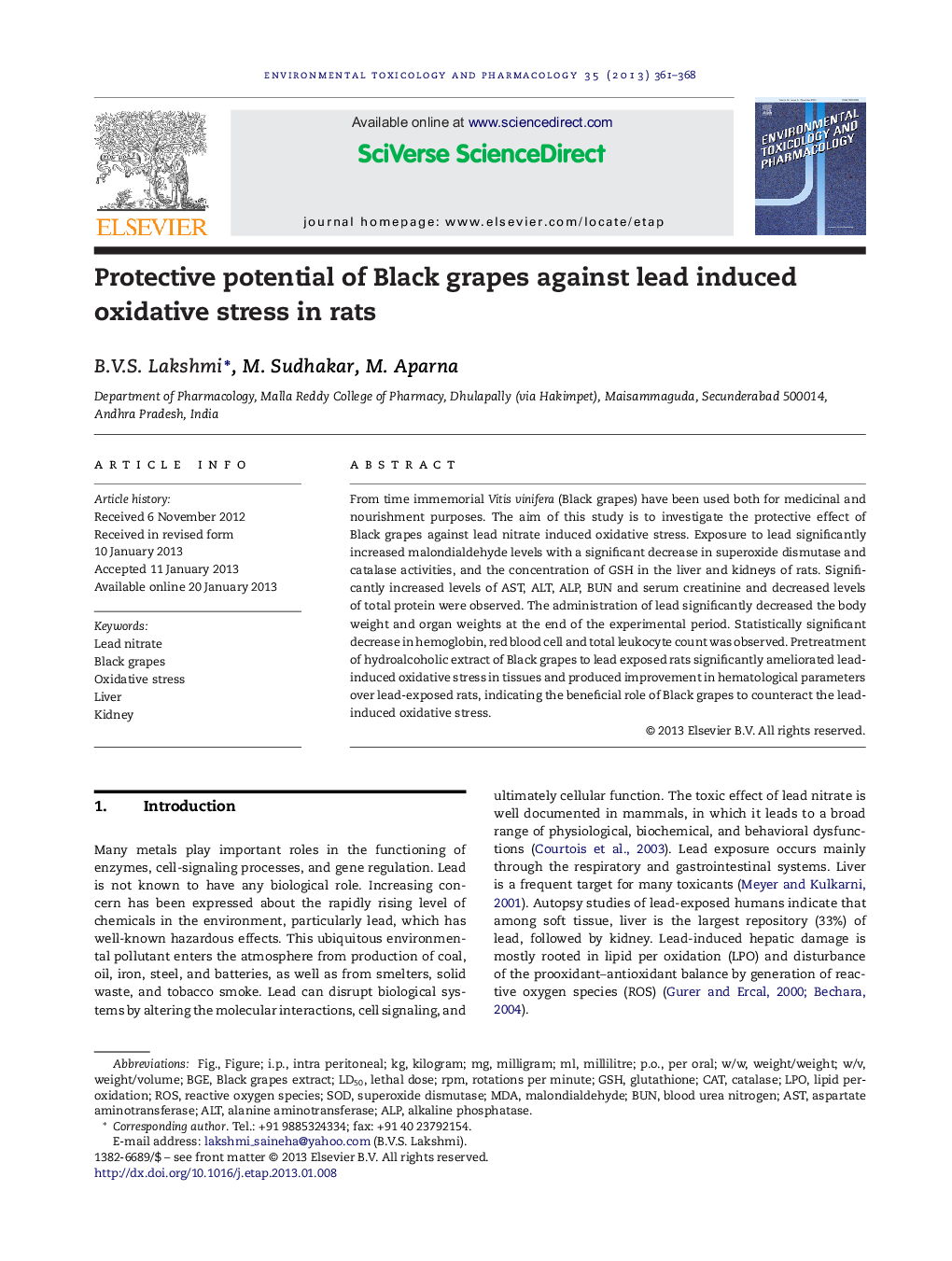| Article ID | Journal | Published Year | Pages | File Type |
|---|---|---|---|---|
| 2583172 | Environmental Toxicology and Pharmacology | 2013 | 8 Pages |
From time immemorial Vitis vinifera (Black grapes) have been used both for medicinal and nourishment purposes. The aim of this study is to investigate the protective effect of Black grapes against lead nitrate induced oxidative stress. Exposure to lead significantly increased malondialdehyde levels with a significant decrease in superoxide dismutase and catalase activities, and the concentration of GSH in the liver and kidneys of rats. Significantly increased levels of AST, ALT, ALP, BUN and serum creatinine and decreased levels of total protein were observed. The administration of lead significantly decreased the body weight and organ weights at the end of the experimental period. Statistically significant decrease in hemoglobin, red blood cell and total leukocyte count was observed. Pretreatment of hydroalcoholic extract of Black grapes to lead exposed rats significantly ameliorated lead-induced oxidative stress in tissues and produced improvement in hematological parameters over lead-exposed rats, indicating the beneficial role of Black grapes to counteract the lead-induced oxidative stress.
► Lead exposure induces oxidative stress in liver and kidneys of rats, alterations in body weight, organs weight and hematological indices. ► No changes in the selected biochemical variables were observed in rats treated with Black grapes alone as compared with controls. ► Pretreatment of Black grapes partly mitigates lead nitrate-induced changes in hepatic and renal-biochemical and hematological parameters. ► This could be due to its antioxidant nature, which combines free radical scavenging with metal chelating properties.
